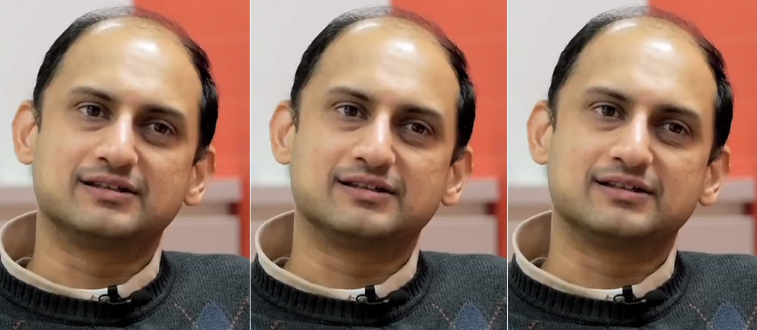New Delhi: The Reserve Bank of India (RBI) refused the government’s proposal to extract Rs 2-3 lakh crore from its balance sheet in 2018 for pre-election expenditure ahead of Lok Sabha polls in the following year, former central bank deputy governor Viral Acharya said in a new prelude to his book, Quest for Restoring Financial Stability in India.
According to Mint, this new prelude is in the updated edition of his book, first published in 2020.
This apparently had led to the differences between RBI and the government. Acharya had first flagged this issue while delivering his speech at the A.D. Shroff Memorial Lecture in late 2018.
“Creative minds in the bureaucracy and the government” devised a plan to transfer substantial sums accumulated by RBI during tenure of previous governments to the current government’s account, he said in the prelude.
Every year, the central bank sets aside a part of its profit, instead of distributing it all to the government, and in three years leading up to demonetisation, the central bank made record profit transfers to the government, Acharya said.
During the demonetisation year, the expense for currency printing reduced the transfers made to the Centre, resulting in “intensifying” the government’s demand ahead of the 2019 elections, he said, per the newspaper.
It was effectively an attempt to ensure back-door monetisation of fiscal deficit by the central bank, he said. “Why cut populist expenditures in an election year …. when the central bank balance sheet can be raided and surging fiscal deficits essentially monetised?”
Another reason for exerting pressure on RBI was the government’s failure to raise divestment revenues. Divestment shortfall sought to be met via transfers from the RBI is an annual ritual now, he said.
When RBI did not comply with the requests for the transfers sought, a proposal within the government suggested invoking Section 7 of the Reserve Bank of India Act, which allows the government to issue ‘directions to the bank as it may, after consultation with RBI governor, (to consider it) necessary in the public interest’, he said.
The invoking of this section was an unprecedented move in the 80-year history of RBI. Although then RBI governor Urjit Patel had cited personal reasons for resigning nine months before the completion of his three-year term, reports indicated the move came amid the central bank facing pressures on its autonomy from the government.
In his updated edition of the book, Acharya, per Mint, argued that matters of “public interest” like this should be openly debated rather than discussed behind closed doors.
One notable example of such a transfer was the one RBI made during the pandemic in 2020, a move that was well justified, he said.
In FY23, the central bank paid dividends of Rs 87,416 crore to the government. It had paid Rs 30,307 crore in FY22.
Acharya had quit, in June 2019, six months before his three-year term as the deputy governor in-charge of the monetary policy department. He had warned that any government undermining the banks’ authority would face the wrath of financial markets and economic fires.
But data shows that governments tend to raise overall spending before general elections. They also often spend relatively more on subsidies and transfers ahead of polls, a 2018 Mint report had said.
The report cited historical data, saying most Union governments have resorted to fiscal expansion in the year ahead of general elections.
However, the Centre dipping into the coffers of the RBI to meet its fiscal deficit target has been a hot-button issue, and it has not gone down well with many economists and market players, the Hindu BusinessLine explained.
In 2019, RBI had transferred the highest-ever surplus of Rs 1.76 lakh crore to the government. This was in line with the recommendation of a committee, led by former RBI governor Bimal Jalan, that was constituted to decide how much capital reserves the central bank should hold.
Also Read: Ahmedabad Gearing Up To Immerse In Garba Festivities













